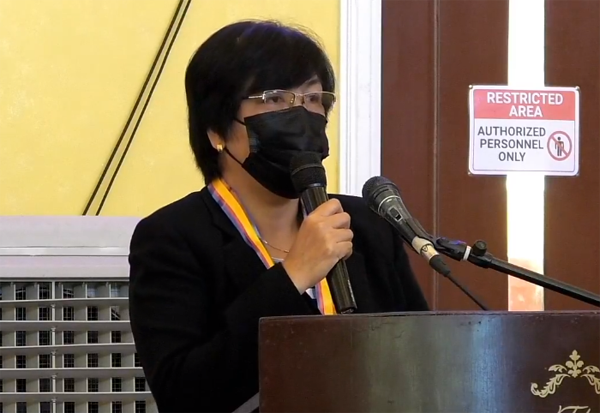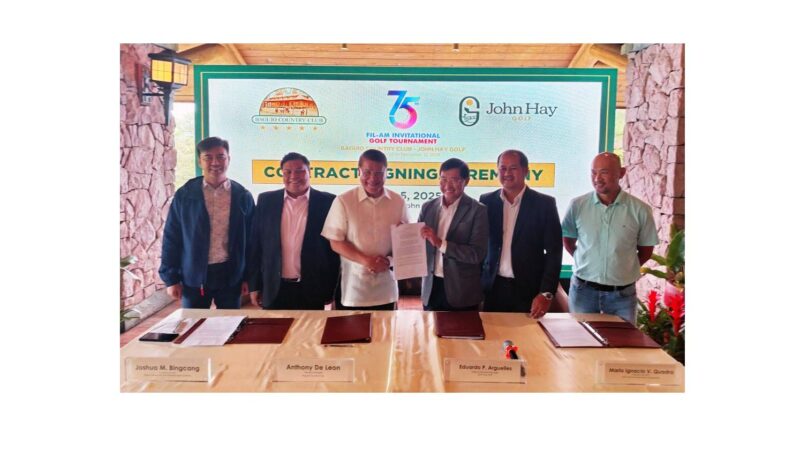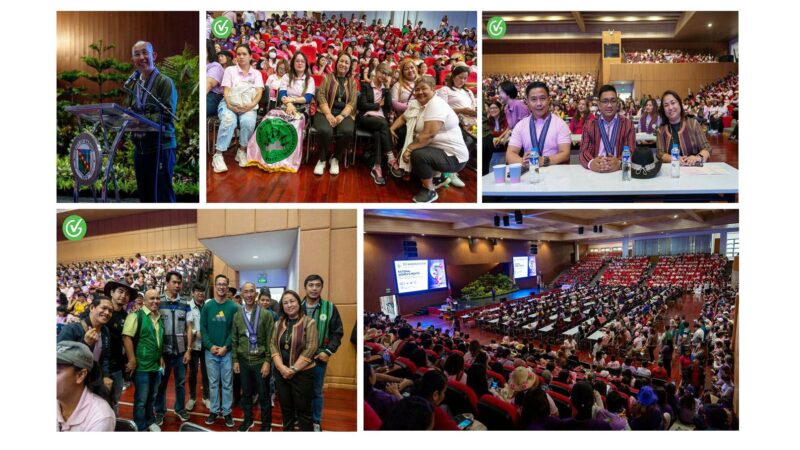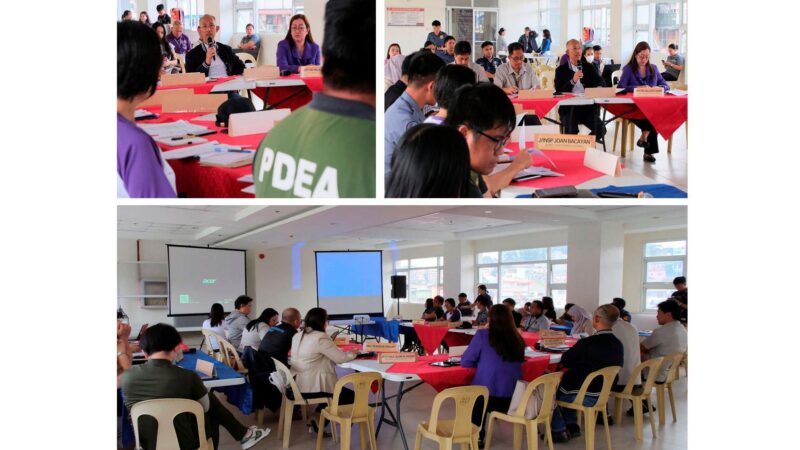Constituents urged to support evidence-based monitoring for quality statistics

COMMUNITY-BASED MONITORING SYSTEM. Philippine Statistics Authority Cordillera regional director Villafe P. Alibuyog urges everyone to participate in the ongoing technology-based information and data gathering program of the government for quality statistics that will aid the nation in crafting evidence-based policies for socio-economic recovery during the Kapihan sa Baguio with barangay district coordinators on Thursday, October 28, 2021 at Hotel Elizabeth Baguio. Merriam del Rosario, FNS
BAGUIO CITY — The Philippine Statistics Authority (PSA) underscored the importance of the use of relevant data as basis for policy decisions, urging constituents to support the government’s Community-Based Monitoring System (CBMS) project to properly address the socio-economic impact of the Covid-19 pandemic.
“Using relevant statistics as solid evidence in crafting programs and policies will guide and support the nation’s effort in navigating the pandemic towards socio-economic recovery,” PSA Cordillera regional director Villafe P. Alibuyog said in her welcome remarks during the Kapihan sa Baguio with barangay district coordinators on Thursday, October 28.
Alibuyog said the statistics office wanted the city of Baguio to accept the challenge to conduct a pilot area for the CBMS project and raise awareness of constituents, foster cooperation and support the city’s endeavor of having good and quality statistics, in partnership with PSA.
“The importance and adequacy of information and statistics is crucial in closely monitoring Covid-19 cases, recovery, and deaths, and in identifying the group of people qualified for financial aid,” Alibuyog said.
She added that decisions of this matter must be anchored on good official statistics and emphasized that only relevant data from reliable sources must be used, urging constituents to stay away from “tsismis” (gossip).
Baguio City Planning and Development Office (CPDO) representative Cyr Bagayao said that a Memorandum of Agreement has already been entered into between PSA and the City Government of Baguio on Monday, with a total funding of PhP45M, the bulk of which was allotted for salaries of enumerators, supervisors, data processors and area supervisors.
Bagayao said the CBMS project has already started in the city with five barangays as pilot areas: Asin, Irisan, Bakakeng Norte, Bakakeng Sur, and SLU-SVP.
“We intend to deploy our enumerators to the other barangays by mid-November,” Bagayao said.
Bagayao also said that the province of Benguet is planning to conduct CBMS next year.
He said that the office of the CPDO coordinator Donna Rillera-Tabangin is planning to collaborate with the province so to lead to only one and the same direction towards long-term plans and goals for the entire province of Benguet to include Baguio.
“It is clearly indicated in the Local Government Code that if there are programs, projects, and activities that benefit neighboring municipalities, then go ahead and do so,” Bagayao said.
He also wanted to correct the notion of other city officials that the program does not have anything to do with disaster risk reduction, and said that it would be much better that resources be spent on prevention and mitigation rather than on disaster response.
“The international community will agree that for every dollar we spend for disaster prevention and mitigation, we save over three dollars [than when spent on disaster response, rehabilitation, and recovery],” Bagayao said.
He said that the proper programs and activities that need to be implemented to reduce vulnerability of barangay constituents will be readily identified once all the data of vulnerable sectors in the city are gathered.
“The basic message that the city government and the PSA would want to send to the community is the importance of CBMS, basically resource allocation based on hardcore evidences before being enrolled for the annual investment program,” Bagayao said.
Bagayao added that besides the city government, students will also greatly benefit from the CBMS program as the results gathered will be very helpful in the conduct of their school research activities.
The law defines CBMS as referring to an organized technology-based system of collecting, processing and validating necessary disaggregated data that may be used for planning, program implementation and impact monitoring at the local level while empowering communities to participate in the process.
It was signed into law on April 17, 2019 under Republic Act No. 11315, otherwise known as the Community-Based Monitoring System (CBMS) Act. The Implementing Rules and Regulations (IRR) signed on May 20, 2020, mandated the PSA as the lead implementing agency.
Data collected from CBMS include information regarding health, nutrition, shelter, sanitation, security, water, education, income, environment, participation, status of government projects, location of buildings, housing units, service institution and infrastructure, government projects, and natural resources.
“Enumerators go house to house with a tablet on hand to gather information,” PSA-Benguet chief statistical specialist Imelda Buyuccan said.
Buyuccan said respondents should be knowledgeable of the household because they will be administered a 40-page questionnaire that takes about an hour or so to complete.
“Respondents should know the answers to the questions,” Buyuccan said.
For their part, the barangay coordinators said they give the program a hundred percent support for aiding them in their planning activities, and in verifying the names of their constituents.
“Ito po ang matagal na naming nire-request sa PSA dahil kung minsan, kapag may mga nagrerequest ng clearances, hindi namin ma-verify kung talagang taga rito sila sa barangay. Very timely po itong CBMS,” barangay coordinator Virgilio Orca, Jr. said. (This is what we had long been requesting from PSA because at times when people request for clearances, we are not able to verify if these people are truly our barangay constituents. The CBMS came very timely.)
PSA celebrated the 32nd National Statistics Month last October with the theme “Revving up for Economic and Social Recovery Through Evidence-Based Policies”, inspired by the “Recharge PH” Program of the government which rallies all sectors of the economy and all the Filipino people to adopt a “whole of society approach” to unite and contribute towards economic recovery. //Merriam del Rosario-FNS







